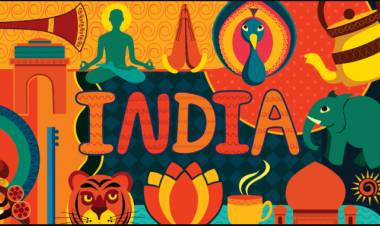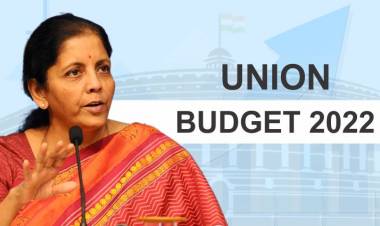National Mathematics Day 2020

In India, the day December 22 has been declared as the National Mathematics Day. The Declaration was made by Dr. Manmohan Singh, Former Prime Minister of India, during the inaugural ceremony of the celebrations to mark the 125th birth anniversary of Srinivasa Ramanujan held at the Madras University Centenary Auditorium on 26th February 2012.
India has had a long legacy of extraordinary teachers and scholars who had immense knowledge about mathematics and astronomy. From discovering the concept of zero to calculating the correct days in a year, mathematicians in India have been at the forefront of challenging the norms as well as a thirst for knowledge.
Here are 10 Indian mathematicians who changed the world by their discoveries:
Aryabhata Aryabhata was born on 476 CE in Pataliputra which is present day Patna, Bihar. He is famous for putting out concepts like lunar eclipse and solar eclipse, rotation of Earth on its axis, reflection of light by moon, value of pi correct to 4 decimal places, circumference of Earth to 99.8 per cent accuracy. His works include the famous Aryabhatiya which he wrote when he was just 23 years old. He influenced other future mathematicians and thinkers like Lalla, Bhaskara I, Brahmagupta, Varahamihira.
Aryabhata was born on 476 CE in Pataliputra which is present day Patna, Bihar. He is famous for putting out concepts like lunar eclipse and solar eclipse, rotation of Earth on its axis, reflection of light by moon, value of pi correct to 4 decimal places, circumference of Earth to 99.8 per cent accuracy. His works include the famous Aryabhatiya which he wrote when he was just 23 years old. He influenced other future mathematicians and thinkers like Lalla, Bhaskara I, Brahmagupta, Varahamihira.
Brahmagupta
 Brahmagupta was born on 598 CE in Ujjain. He was an Indian mathematician and astronomer. His book Brahmasphutasiddhanta is the first text that mentions zero as a number. Besides that, he also gave out many algebra and arithmetic related concepts and formulas.
Brahmagupta was born on 598 CE in Ujjain. He was an Indian mathematician and astronomer. His book Brahmasphutasiddhanta is the first text that mentions zero as a number. Besides that, he also gave out many algebra and arithmetic related concepts and formulas.
Srinivasa Ramanujan
 Srinivasa Iyengar Ramanujan was born on December 22, 1887 in the present day Tamil Nadu, India. He is one of the most recognized Indian mathematicians although he had almost no formal training in pure mathematics. He is known for mathematical analysis, number theory, infinite series, and continued fractions, including solutions to mathematical problems considered to be unsolvable.
Srinivasa Iyengar Ramanujan was born on December 22, 1887 in the present day Tamil Nadu, India. He is one of the most recognized Indian mathematicians although he had almost no formal training in pure mathematics. He is known for mathematical analysis, number theory, infinite series, and continued fractions, including solutions to mathematical problems considered to be unsolvable.
P.C. Mahalanobis Prasanta Chandra Mahalanobis was born on June 29, 1893 in Kolkata, West Bengal. A renowned Indian scientist and applied statistician he contributed the Mahalanobis distance, a statistical measure and for being one of the members of the first Planning commission of free India. He founded the Indian Statistical Institute, and contributed to the design of large-scale sample surveys.
Prasanta Chandra Mahalanobis was born on June 29, 1893 in Kolkata, West Bengal. A renowned Indian scientist and applied statistician he contributed the Mahalanobis distance, a statistical measure and for being one of the members of the first Planning commission of free India. He founded the Indian Statistical Institute, and contributed to the design of large-scale sample surveys.
C.R. Rao Calyampudi Radhakrishna Rao (C R Rao) was born on September 10, 1920 in Mysore. He is an Indian-born and now naturalized American citizen. His contributions include estimation theory, statistical inference and linear models multivariate analysis, combinatorial design, orthogonal arrays, biometry, statistical genetics, generalized matrix inverses and functional equations.
Calyampudi Radhakrishna Rao (C R Rao) was born on September 10, 1920 in Mysore. He is an Indian-born and now naturalized American citizen. His contributions include estimation theory, statistical inference and linear models multivariate analysis, combinatorial design, orthogonal arrays, biometry, statistical genetics, generalized matrix inverses and functional equations.
D.R. Kaprekar Dattathreya Ramchandra Kaprekar was born on January 17, 1905 in Dahanu, Maharashtra. He was a recreational mathematician who described several classes of natural numbers including the Kaprekar, Harshad and Self numbers and discovered the Kaprekar constant. He published extensively and became well known in recreational mathematics circles without a formal doctorate.
Dattathreya Ramchandra Kaprekar was born on January 17, 1905 in Dahanu, Maharashtra. He was a recreational mathematician who described several classes of natural numbers including the Kaprekar, Harshad and Self numbers and discovered the Kaprekar constant. He published extensively and became well known in recreational mathematics circles without a formal doctorate.
Harish Chandra
 Harish Chandra was born on October 11, 1923 in Kanpur, India. The Indian American mathematician and physicist is known for his fundamental work in representation theory, especially harmonic analysis on semi simple Lie groups.
Harish Chandra was born on October 11, 1923 in Kanpur, India. The Indian American mathematician and physicist is known for his fundamental work in representation theory, especially harmonic analysis on semi simple Lie groups.
Satyendranath Bose Satyendra Nath Bose was born on January 1, 1894 in Kolkata, India. A renowned Indian physics, he specialized in theoretical physics. He is best known for his work on quantum mechanics in the early 1920s, providing the foundation for Bose-Einstein statistics and the theory of the Bose-Einstein condensate. He was awarded India's second highest civilian award, the Padma Vibhushan in 1954 by the Government of India. The class of particles that obey Bose-Einstein statistics, bosons, was named after Bose.
Satyendra Nath Bose was born on January 1, 1894 in Kolkata, India. A renowned Indian physics, he specialized in theoretical physics. He is best known for his work on quantum mechanics in the early 1920s, providing the foundation for Bose-Einstein statistics and the theory of the Bose-Einstein condensate. He was awarded India's second highest civilian award, the Padma Vibhushan in 1954 by the Government of India. The class of particles that obey Bose-Einstein statistics, bosons, was named after Bose.
Bhaskara Bhaskara was born in the year 1114 in Bijapur in Karnataka. He was an Indian mathematician and astronomer and is known as the greatest mathematician of medieval India. His main work Siddhanta Shiromani (Crown of Treatises) has laid foundations for many theories in arithmetic, algebra, mathematics of the planets, and spheres. He was perhaps the first to conceive the differential coefficient and differential calculus, way before Newton and Leibniz.
Bhaskara was born in the year 1114 in Bijapur in Karnataka. He was an Indian mathematician and astronomer and is known as the greatest mathematician of medieval India. His main work Siddhanta Shiromani (Crown of Treatises) has laid foundations for many theories in arithmetic, algebra, mathematics of the planets, and spheres. He was perhaps the first to conceive the differential coefficient and differential calculus, way before Newton and Leibniz.
Narendra Karmarkar Narendra Krishna Karmarkar born in the year 1957 in Gwalior is an Indian mathematician, who is known for Karmarkar's algorithm which solves linear programming problems in polynomial time.
Narendra Krishna Karmarkar born in the year 1957 in Gwalior is an Indian mathematician, who is known for Karmarkar's algorithm which solves linear programming problems in polynomial time.
-Riya Singh



























Comments (0)